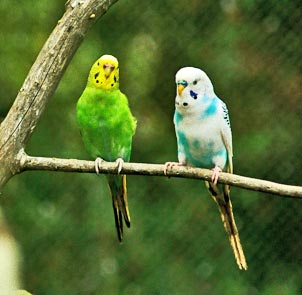
Obtaining a healthy and well-socialized bird is probably the most important aspect of bird ownership. It is a process that need not be rushed to avoid disappointment on the part of the owner and difficulty for the bird as well. A prospective bird owner has basically two options – to buy or to adopt.
If one wishes to make a critical difference in the life of a displaced parrot, the choice would have to be to adopt. There are thousands of unsuccessful companion parrots that are on the secondary market in need of both rescue and commitment from a knowledgeable caregiver. Many parrots have found themselves transferring to half a dozen or more homes even before they reach maturity. This reality is due to the fact that not many people have the patience to deal with parrots with serious behavioral dysfunction.
There is clearly a lack of buyer education before, during and after the purchase of the parrots. Far too many people are thrilled with the idea of having a pet bird but sadly do not have what it takes to be committed, long-term parrot owners. Many healthy parrots can outlive their owners thus there exists a dilemma on what to do with them when their owners are no longer around or worse, when their owners totally give up on them.
Statistics gathered from behavior consultants, quality bird shops, rescue and rehab organizations and avian veterinaries will attest to the great number of unsuccessful parrot homes. It used to be that the most common concern was how to raise baby parrots. Now, the rehabilitation of second-hand parrots has become a major issue and problem.
Purchasing or adopting a parrot can be done through a private party, meaning a person that is not a breeder or a shop owner. Parrots obtained through this method are usually cheaper and come with a cage and accessories. There is also less incidence of disease since privately owned birds are usually not in contact with many other birds. A probable disadvantage would be is that the bird may come with emotional problems or may be older and thus less adaptable to a new environment. It is possible that the habits may have been established and the background of the bird is unclear especially if it has been passed to many owners.
Purchasing from a breeder is usually cheaper compared to purchasing from a bird or pet store. Also, the buyer is assured of lower chances of birds with diseases especially if the breeder is one who maintains a closed aviary, tests and quarantines new birds and adheres to good breeding practices. This is most often an excellent route for obtaining healthy baby parrots as reputable breeders would be most happy to provide advice and guidance on the proper care of the bird. The breeder is and should be a source for continued support. This option may be less convenient than buying from a store since many breeders often live outside the urban areas and may entail driving a distance. There is also a matter of making the distinction between a good and a bad breeder.
Buying from a bird or pet store may easily be the most convenient choice especially with regards to payment options. However, the cost of obtaining a pet parrot is much higher compared with other sources. The incidence of bird diseases is likewise higher since stores are seldom able to properly quarantine birds from each other. The risks are considerable since stores get birds from different sources. Most pet store personnel are not equipped with the proper information about bird care. Staff of stores specializing in birds fare relatively better in terms of knowledge and accurate advice.
There is one important thing that responsible buyers can do to help improve the situation. Buyers should not spend their money in stores that provide substandard care for the birds. Supporting the business of quality bird shops will go a long way towards the benefit of these wonderful birds.